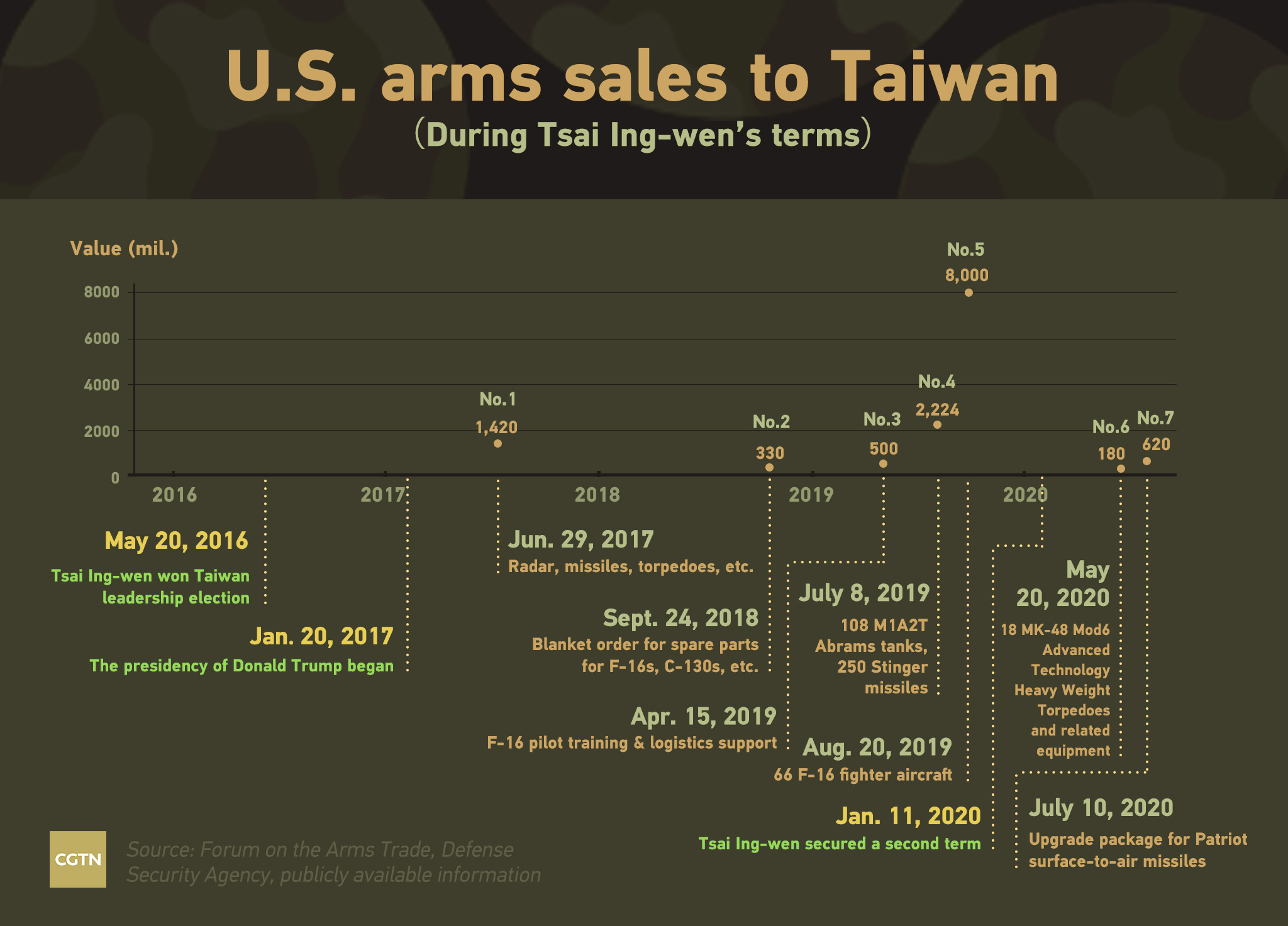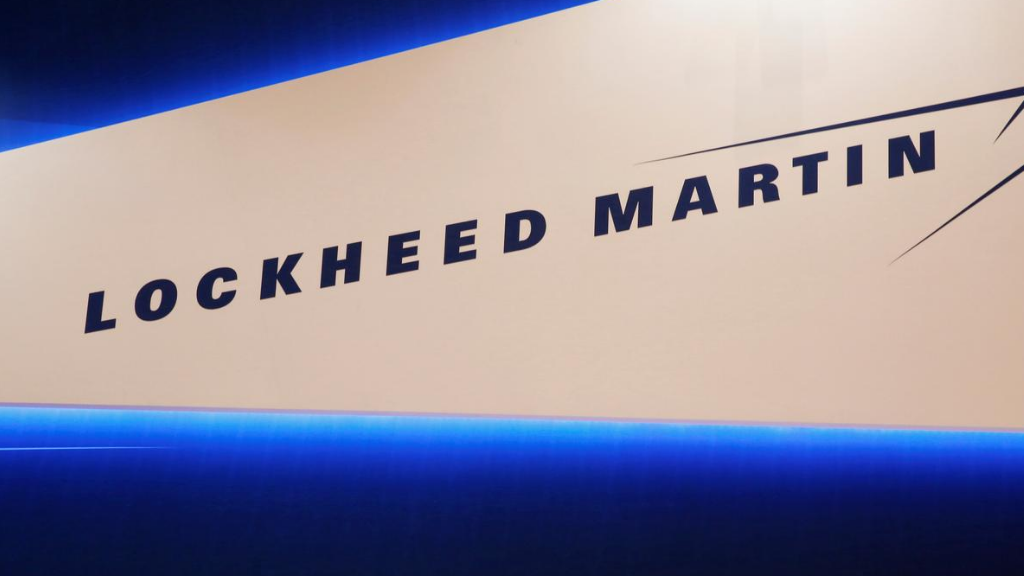During a preview of the annual Han Kuang military exercise, Taiwan's swordfish submarines test-fired heavy torpedoes on July 1 off the southeastern coast of the island. It was Taiwan's first torpedo test-firing since 2007, and since the U.S. announced the sale of MK-48 heavyweight torpedoes to Taiwan in May.
In line with the push for weapons sales to Taiwan, on May 20, the U.S. State Department greenlighted a weapons deal with the island of 18 MK-48 Mod6 Advanced Technology Heavy Weight Torpedoes and other weapons for an estimated value of 180 million U.S. dollars.
China has time and again indicated that the arms sales the U.S. carried out with the island go against international law, the one-China principle and three China-U.S. Joint Communiques.
The unit price of each torpedo settled at around 10 million U.S. dollars, but back in 2017, Taiwan purchased 46 MK-48 heavy torpedoes for merely 250 million U.S. dollars, that is, 5.4 million U.S. dollars for each torpedo.

Exorbitant military spending
Last July, the Trump administration approved a controversial F-16 fighter jet sale and a 2.2-billion-U.S.-dollar sale of over 100 M1A2T Abrams tanks and portable air defense missiles. A month later, Taiwan rolled out its largest defense spending gain since 2008, with the 2020 budget amounting to over 13 billion U.S. dollars.
The military spending accounted for 2.26 percent of the island's yearly GDP and embraced an 8.3 percent growth from a year earlier to reach 13.11 billion U.S. dollars, marking the highest since 2001, according to data from the statistics agency Directorate General of Budget, Accounting and Statistics.
Taiwan's fiscal revenue is finite for a certain period of time, and it must meet the expenditures of various spheres including politics, economy, military, culture, education, science, and sports. When one realm scales up the budget, some others will have to reduce the budget, so as to achieve a balance of payments.
With certain amount of fiscal revenue, building up the defense budget is equivalent to robbing Peter to pay Paul, which will inevitably reduce other budgets. Naturally, it will crowd out other expenditures for the economy and people's livelihood, bringing down Taiwan's competitiveness in economic terms.
A case in point is the sweeping pension cutbacks that took effect on July 1, 2018, in accordance with which senior veterans would see their monthly stipend cut by more than 20 percent over the next decade, after a smaller initial drop, in that "an unreformed pension system could be bankrupt by 2020."
It infuriated thousands of veterans and civil servants, who regularly gathered outside parliament to protest the cuts. Legislators also passed a separate pension reform bill in 2017 that targeted civil servants.

China announced it will impose sanctions on U.S. aerospace and defense contractor Lockheed Martin for involvement in the latest U.S. arms sale to the Taiwan region, July 14, 2020. /Reuters
China announced it will impose sanctions on U.S. aerospace and defense contractor Lockheed Martin for involvement in the latest U.S. arms sale to the Taiwan region, July 14, 2020. /Reuters
Salient contrast
Weapon sales to Taiwan have always been a mainstay shoring up the U.S. arms industry. The U.S. arms sales to Taiwan serve its intention to contain China strategically, and stimulate domestic demand for its economy.
On the part of Taiwan, an open-purse policy that burns billions of dollars per year on weapons purchases tends to result in lackluster economic performance and adversely affect cross-Strait economic exchanges, but it is illustrative of a hefty burden on its soil's long-term economic trajectory.
As part of the public comment process for a 90-day trade review conducted by the United States in 2017, the island said "trade data accounting for arms sales, and the after-sales services and personnel training that come with it, would further close the overall trade gap between Taiwan and the United States."
Taiwan politician Ma Ying-jeou mentioned in a 2017 speech that the island's trade surplus with the mainland averaged 70 billion U.S. dollars per year.
He then accentuated Taiwan will encounter a deficit in trade without bilateral trade with the mainland, in one example, it ran up deficits with Japan, and it can only fill the deficits with other countries by virtue of the trade surplus with the mainland.
On the other hand, in line with an early harvest program under the framework of the Economic Cooperation Framework Agreement (ECFA) in force since January 2011, the mainland cut back and later eliminated tariffs on 539 items of Taiwan goods, with Taiwan following suit on 267 mainland products.
The early harvest program is designed to accelerate the implementation of ECFA, by reducing the tariffs of some products, agricultural products, in particular, Taiwan can attain from the mainland's huge domestic market in advance.
Benefiting from the trade pact, sales of Taiwan's farm produce to the mainland tripled from 2010 through 2018, the mainland then served as the largest market of farm produce from Taiwan, according to the State Council Taiwan Affairs Office.
The Chinese mainland has lifted 37.53 billion yuan (5.32 billion U.S. dollars) in tariffs as of June 2019 since the early harvest program with Taiwan took effect in 2011, according to Xinhua News Agency.